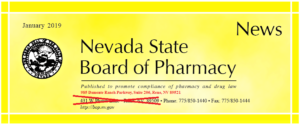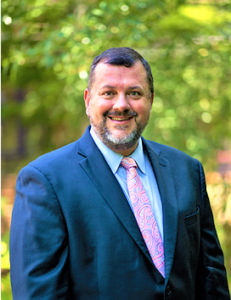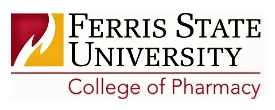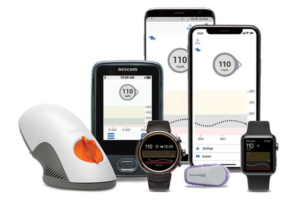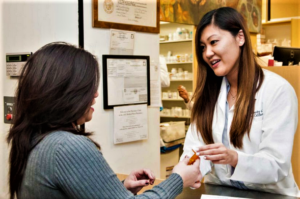- Albertsons pharmacy technicians first in Idaho trained to prescribe naloxone (drugstorenews.com)
As a new Idaho law allowing pharmacy technicians to prescribe naloxone takes effect, Albertsons announced that its Boise-area pharmacy technicians are the first in the state who have been trained to do so...The law, signed in February, makes Idaho the first state in the nation to add pharmacy technicians to the ranks of pharmacists, physicians and nurse practitioners in being able to prescribe the opioid overdose reversal drug. Idaho Gov. Brad Little also issued an executive order creating an advisory group in the state to guide healthcare decisions and strategies related to opioid misuse...“Idaho is leading other states in the steps we are taking to expand access to this critical medication and in our efforts to address the opioid crisis,” Little said. “Training pharmacy technicians and all health professionals to prescribe naloxone further reaches our underserved and rural communities. Albertsons has been a key partner in increasing the scope of practice for both pharmacists and technicians to continue improving access to beneficial and lifesaving medications.”...READ MORE
- Nevada State Board of Pharmacy News (bop.nv.gov)
Board Members
Leo Basch, PharmD, RPh, Las Vegas
Robert Sullivan, Reno
Jason Penrod, PharmD, RPh, Reno
Kevin Desmond, RPh, Reno
Wayne Mitchell, PharmD, RPh, Carson City
Melissa Shake, PharmD, RPh, Las Vegas
Jade Jacobo, PharmD, JD, RPh, Las Vegas
Retirement of the Executive Secretary
- Larry L. Pinson, PharmD, RPhNew Reno Office -
985 Damonte Ranch Parkway, Suite 206, Reno, NV 89521.
Board Member UpdateNevada Medicaid Initiates Antibiotics Prior Authorization Criteria - Nevada Department of Health and Human Services
National Pharmacy Compliance NewsFinal Guidance Documents Address FDA Policies Related to DSCSA
First FDA-Approved Drug Containing Extract From Cannabis Plant to Be Placed in Schedule V
ASHP Guidelines Provide Recommendations for Preventing Patient Harm From Medication Errors
FDA’s Final Guidance Documents Address Compounding and Repackaging of Radiopharmaceuticals
Pharmacy Toolkit Encourages Conversations With Patients About Prescription Opioids
Biosimilars Added to FIP’s Policy on Pharmacists’ Right to Substitute a Medication
FDA Offers CE Course on Reducing Hypoglycemic Events in Patients With Type 2 Diabetes - Leveraging Health Literacy and Patient Preferences to Reduce Hypoglycemic Events in Patients with Type 2 Diabetes
- APhA looks to alleviate increasing pressures of the profession (drugstorenews.com)
What I’m(Michael Hogue, president-elect of the American Pharmacists Association) hearing from these recent graduates, as well as from seasoned pharmacists, is:
- Public and private payers are looking to pay the lowest price for prescription drugs;
- The community pharmacy business model no longer supports sufficient staffing, leaving little time for patient care, and in some cases jeopardizing patient safety;
- Pharmacists, now largely employed by a corporate entity rather than through private practice, feel they have little control over their practice environment and professional judgment;
- The number of pharmacists in many markets is leading to fear among some of losing their jobs or experiencing lower wages if they do not meet productivity metrics as more technical tasks are delegated to technicians;
- Full-time employment is sometimes hard to come by as a pharmacist; and
- Young pharmacists have tremendous personal debt from college.
The American Pharmacists Association...adopted a policy on the pharmacist workplace environment and patient safety. The policies serve not only as guiding statements and principles for the profession, but are frequently referenced when key policy and legal decisions are at play. In addition...APhA board of trustees has incorporated pharmacist well-being initiatives as core to our strategic plan. Among other efforts, we are building tangible resources to assist individual pharmacists with practice challenges, professional satisfaction, recognition and personal well-being...APhA is working with other professional organizations and employers to seek legislative changes at the state and national levels that will result in recognition of pharmacists as providers of care. Coupled with changes that remove unnecessary barriers to the use of technologies and technicians, this will lead to new opportunities for the patient care we are capable of providing, allowing the business model to shift.
- Integrating medication management with its EHR helped one hospital beat CMS expectations (healthcareitnews.com)
King's Daughters Medical Center...found it challenging to provide an accurate, verifiable home medication record for its providers to trust as they made important decisions about existing medications both during an inpatient visit and after discharge...King's Daughters now uses external medication history from pharmacy fill data as well as insurance claims data, provided by vendor DrFirst, to complement verification and push the information to the providers...While it is not intended as a replacement for the patient/family interview, its integration into the electronic health record greatly augments the conversation and can prompt a patient to include easily forgotten information...This reduces the risk of prescription loss and makes the process more efficient for the patient while ensuring the health record is updated in advance of future visits...King's Daughters is required to report its performance on both medication reconciliation (with a threshold goal of 50 percent) and e-prescription (10 percent) to the Centers for Medicare and Medicaid Services...most recent reporting period, Q4 2017, our stats were 77 percent and 52 percent, respectively...integrating medication management tech into the EHR also helped King’s Daughters more effectively retrieve historical data and deliver that information to providers to facilitate new prescriptions in a trustworthy manner that both reduces errors and the abuse of controlled substances...
- How medication management tech helps one hospital better identify interventions (healthcareitnews.com)
CGH Medical Center pharmacists say the system’s Med Card gives patients a better way to keep track of their medications – and say using the software has helped increase clinical knowledge...At CGH Medical Center in Sterling, Illinois, preventable readmissions represent a huge financial and clinical uncertainty...
- THE PROBLEM
- PROPOSAL
- MARKETPLACE
- MEETING THE CHALLENGE
- RESULTS
Pharmacists counseled more than 650 patients in the first eight months of the program at the 97-bed facility. They identified medication interventions in nearly half of all discharges. Depending on the intervention made, these changes had a major impact on patient safety and the cost of their medications...“While we haven’t been able to measure it yet, we are looking into how this program will impact our overall readmission rates and penalties, as well as HCAHPS scores,” said Tim Dunphy, director of pharmacy at CGH Medical Center...READ MORE
- Joint PharmD/MBA programs offer students a differentiating factor (drugstorenews.com)
Wellman is a professor of pharmacy at Ferris State University College of Pharmacy, where he co-launched a dual PharmD/MBA concurrent program...Wellman believes that today a PharmD/MBA degree is essential in preparing students for leadership positions in a wide variety of industries, including retail chain pharmacy, managed care, hospitals and pharmaceutical firms...“Any of the principles that are part of business apply to being a pharmacist,” Wellman said. “We need to be a financial manager, a human resources manager and an operations manager since there are a lot of legal and regulatory components because we work in complex medication distribution systems.”...Pharmacists also have the responsibility to oversee pharmacy techs, which Wellman said means pharmacists need to understand labor laws and different aspects of managing employees equitably...the new crop of pharmacy students need more than just clinical expertise, thanks to changes in reimbursement models and the expansion by many pharmacy retail chains into health centers and clinics...Pharmacy schools are realizing that the traditional business overviews they provide students is simply not enough, and they are stepping up to the plate offering dual PharmD/MBA programs.
- 5 Ways Pharmacists Can Help Prevent Suicide (pharmacytimes.com)How Suicide Quietly Morphed Into a Public Health Crisis (nytimes.com)
With the recent deaths of Spade and Bourdain, health care professionals are also concerned about suicide contagion, a phenomenon in which high-profile suicides influence patients to attempt or committ suicide themselves...pharmacists can play a key role in preventing suicide...pharmacists are ideally situated to assist those in need because of their frequent interactions with patients and access to medical records...However, pharmacists are often unprepared to properly respond to signs of suicide risk, as very few pharmacy schools incorporate suicide prevention courses into their curricula...here are 5 ways pharmacists can help patients who are contemplating suicide...
- Identify at-risk patients.
- Monitor medication use and mental health.
- Collaborate with the health care team.
- Refer to suicide prevention resources.
- Be encouraging and empathetic.
- Diabetes innovations enable self-care, patient engagement (drugstorenews.com)
Diabetes care is providing a gateway for better interaction between pharmacists and patients...people with diabetes visit the retail pharmacy not only to have their prescriptions filled, but also to learn more about blood sugar levels, A1C testing and self-care... Pharmacists also have to face the challenges of keeping costs down, not just for the retailer, but for the patients as well...Manufacturers said many of the latest innovations can help. The product launches help make blood glucose testing easier, more comfortable and more affordable. As a result, patients can be encouraged to improve their self-care, and also reduce certain costs... Greater involvement in the patient’s health care can improve patient results and hopefully, in the process, buy greater loyalty to the pharmacy that they happen to be working with...There are more than a few pharmacy chains that hire pharmacists not to fill prescriptions, but to work on phones, do medication management, and, when they see an issue, they can call the patient or call the healthcare provider...READ MORE
- Needle innovations
- Beyond testing and injecting
- The future
- More Pharmacists Move into Medical Practices, More Doctors See Value (drugtopics.com)
Just as hospital pharmacists moved out of the basement and into direct patient care in the 1980s and 1990s, outpatient pharmacists are moving out from behind the counter and into medical practices...There is a demand for pharmacists from the physician side in ambulatory care...Allegheny Health Network...is putting pharmacists into about 250 different practices that are part of its accountable care organization, a payment model in which the health system receives higher reimbursement if it improves quality and reduces costs…The present model, which is physician-centric, is not getting us to that quadruple aim of better outcomes, lower costs, better patient satisfaction, and improving the work life of our healthcare providers. We are moving to a patient-focused model using team-based care...The pharmacist is not able to bring in direct revenue, but you can see a decrease in 30-day readmissions, a decrease in morbidity, a decrease in ER admissions because you have a pharmacist doing medication management and reconciliation. It is a matter of recognizing that the costs you are saving are different from direct billing...
- Trump signs ‘right to try’ drug bill (thehill.com)
President Trump signed a bill...allowing terminally ill patients access to experimental medical treatments not yet approved by the Food and Drug Administration...Dubbed "right to try," the law's passage was a major priority of Trump and Vice President Pence, as well as congressional Republicans..."Thousands of terminally ill Americans will finally have hope, and the fighting chance, and I think it's going to better than a chance, that they will be cured, they will be helped, and be able to be with their families for a long time, or maybe just for a longer time," Trump said at a bill signing ceremony at the White House, surrounded by terminally ill patients and their families...Most Democrats and public health groups oppose the bill, arguing that it could put patients in danger...FDA oversight of access to experimental treatments exists for a reason — it protects patients from potential snake oil salesmen or from experimental treatments that might do more harm than good...Opponents also argue it gives “false hope” to patients, since drugmakers aren’t required to give unapproved medicines to patients who ask for them...Supporters say, however, it will provide new treatment opportunities for terminally ill patients who have exhausted existing options...


